Submitted by WA Contents
A new art hub in Riyadh evokes "an agricultural depression amid the desert" with massive walls
Saudi Arabia Architecture News - Nov 27, 2024 - 13:58 4296 views
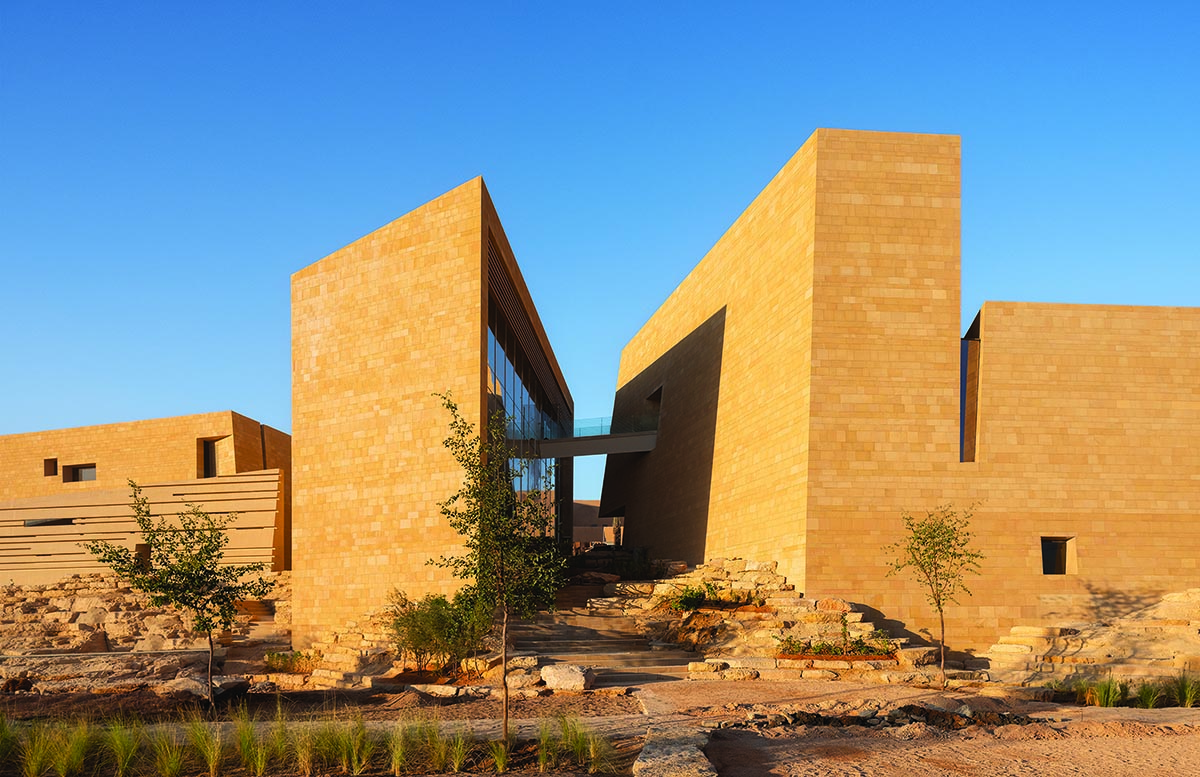
Rome-based architecture practice Schiattarella Associati has designed a new art hub that evokes "an agricultural depression amid the desert" with massive walls in Riyadh, Saudi Arabia.
Named Diriyah Art Futures, the building represents the first museum in the Gulf designed exclusively for digital art.
Image © Antoine Horenbeek
On November 25th, the “Diriyah Art Futures” in Riyadh, the museum has opened a major exhibition "Art Must Be Artificial: Perspectives of AI in the Visual Arts", curated by Jerome Neutres and featuring guests from around the world.
The structure was designed by Italian architects Schiattarella Associati and is the first public undertaking under Saudi Vision 2030, the bold strategy that will direct Saudi Arabia's social, cultural, and economic changes over the next several years.
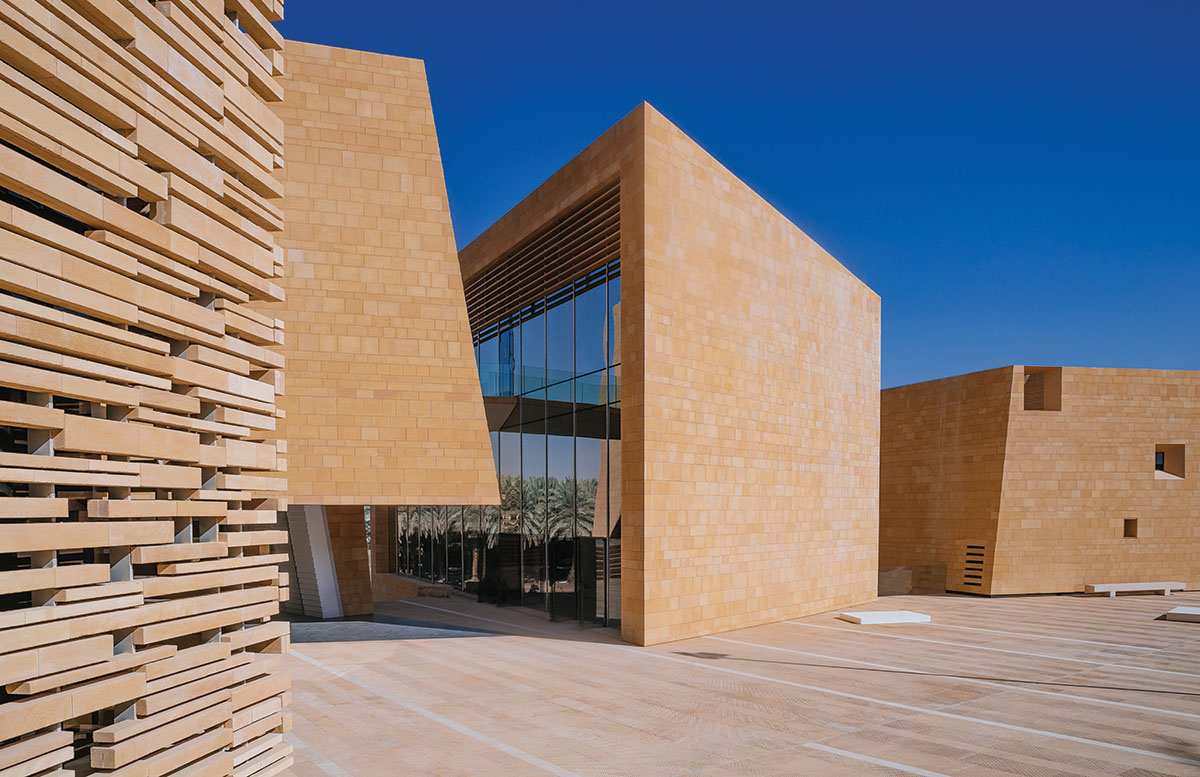
Image © Hassan A. Alshatti
Located north of Riyadh, close to the UNESCO site of At-Turaif, the ancient capital of the Najd desert region and one of the most significant historic and archaeological sites on the Arabian Peninsula, this modern building is situated along the edge of the desert.
Under the direction of Haytham Nawar, the project was commissioned and curated by the Saudi Ministry of Culture. The 12,000-square-metre building includes studios, exhibition areas, research labs, artist residences, an auditorium, and a training center for new media and digital languages.
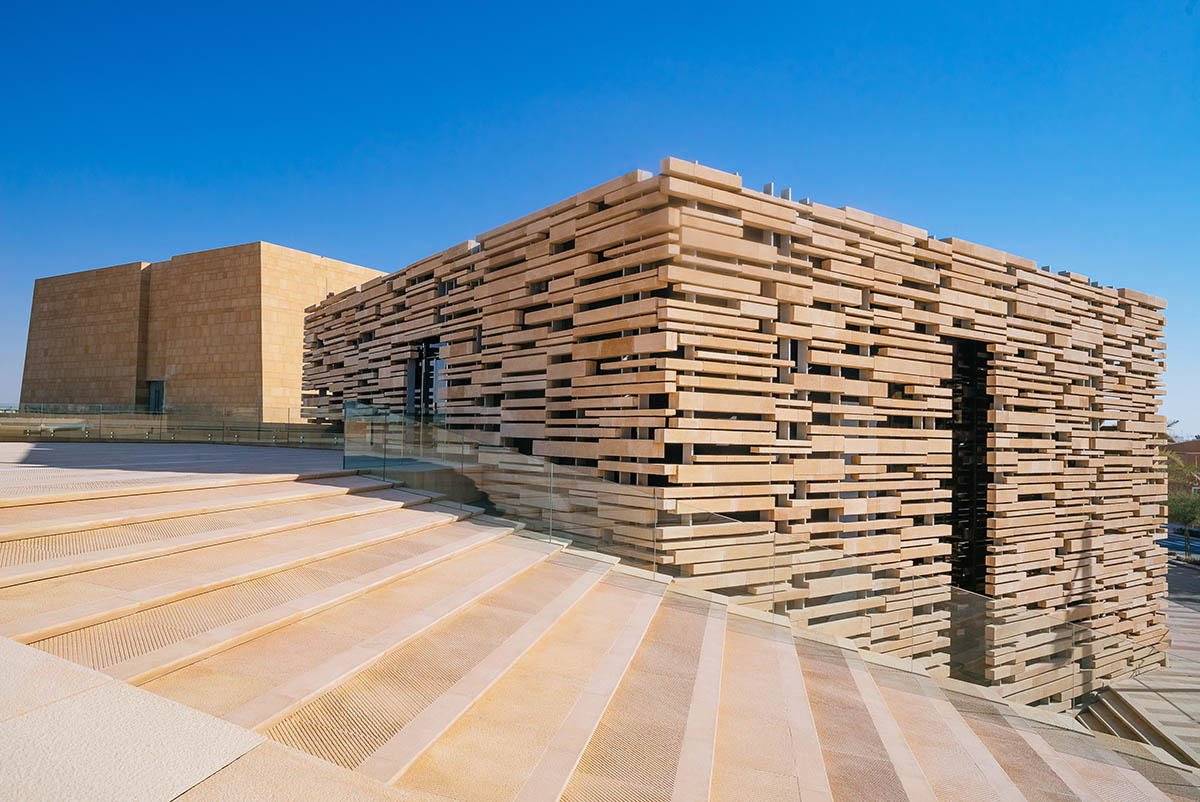
Image © Hassan A. Alshatti
A future-oriented challenge, contemporary architecture that dialogues with Najd heritage and tradition
"We wanted the architecture to feel as though it emerged from the earth," said the architects.
"This is our approach to design: harnessing natural values to create a contemporary language that resonates deeply with the location," the studio added.
Image © Hassan A. Alshatti
The project is made up of a sequence of slender, discrete volumes that stretch horizontally along the Wadi Hanifa ridge, an agricultural depression in the middle of the desert plateau, rather than a single, small structure.
They follow the traditional Najd architecture typical of the region — a "tailoring" work with specific goals — and alternate with narrow, deep passages that create shaded and cool zones. Their purpose is to reconnect the urban and agricultural parts of the wadi, reestablishing the balance between construction and nature.
Image © Hassan A. Alshatti
"This is a boundary structure," said Amedeo Schiattarella, "On one side lies the old historic center with its narrow streets and small buildings, and on the other the agricultural zone with gardens, fields, and wells. Between the two, city walls once served as both division and connection."
"Through these gates, water, crops, and building materials would enter the city. We’ve recreated this passageway concept, where everything connects while clearly marking boundaries."
"Global internationalization has led to a flattening of cultural diversity, with progressive standardization of urban landscapes and a loss of architectural 'biodiversity," added Amedeo, Andrea, and Paola Schiattarella.
"The true challenge today is to start from the value of diversities, working on distinctive characteristics and the specific traits of each place."

Image © Mohamed Somji
Research, innovation, and natural-based solutions
Using site-specific conditions, materials, and knowledge, the architecture of the project is waste-free and was created, in keeping with desert tradition, to address as many needs as possible through form and spatial distribution.
"It’s a contemporary project that meets the challenge of creating a new human dimension in a historically layered land. Najd’s tradition, desert architecture, is based on using construction materials directly from the site: stone, raw earth, and mud plaster. The result is a strong material continuity between soil and structure," said Amedeo, Andrea, and Paola Schiattarella.

Image © Mohamed Somji
Ancient settlements' tiny squares and winding streets are echoed by the gaps between the building's volumes. Condensed, shaded spaces with wind flow were intended to lower temperatures and protect pedestrians from the sun and heat. In order to achieve this, ventilation channels were made that faced the wadi, which is the more humid area.
The complex was constructed to maximize solar exposure, ensure energy efficiency with geothermal cooling, and collect and reuse rainwater, all while keeping the most recent sustainability principles in mind.
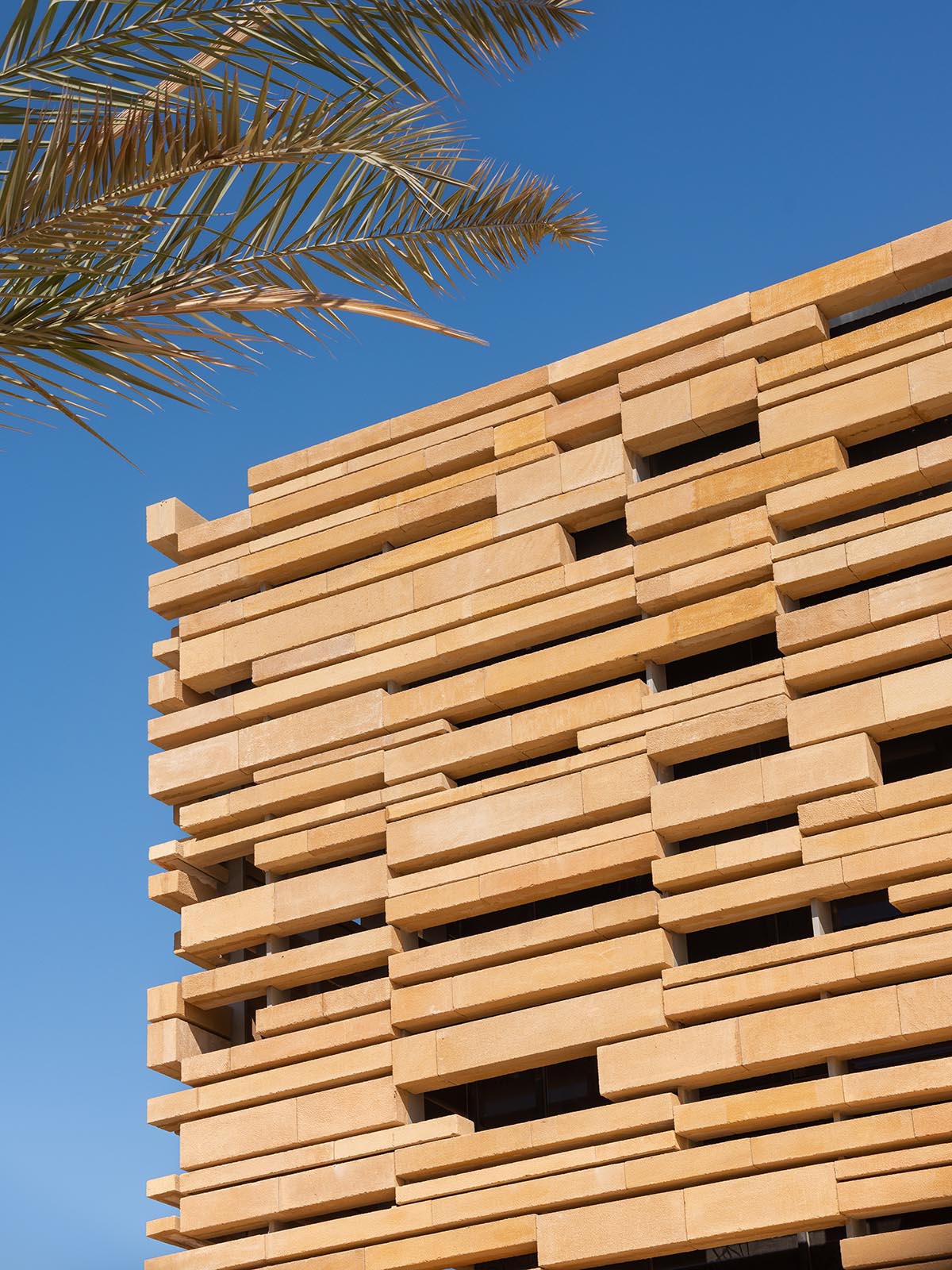
Image © Mohamed Somji
The interior design
Paola Schiattarella's interior design incorporates indigenous materials like Riyadh stone, which is solidified sand that retains the resonance of the desert in the sun, and mud plaster. The Cafe features a contemporary musharabiya, reminiscent of stone walls sculpted by the wind.
"A second skin that lets in light, creating inner shadow play, allowing one to see without being seen," the architects added.
Digital art labs and studios are located in the building's underground core, which is shielded from heat and sunlight. Here, the materials become more modern: cement, steel, and glass are combined with wood, which is uncommon in Saudi interior design.

Image © Mohamed Somji
A sizable open area in the middle of this subterranean space is used as a meeting place for artists, and natural light is directed in through a huge "bell" that lets light in deeply.

Image © Guido Petruccioli
"Our architecture centers on nature, humanity, and cultural values that are never identical to themselves. There is always uniqueness, unrepeatability, and randomness. At the same time, architecture must engage with geometry," said the studio.
"Our trade is to harmonize the consistent rigor of logical-mathematical structure with chance and the accidental. As in Diriyah Art Futures, our work always uses geometry to dynamically organize complexity, embracing contradiction as a life-giving element of architecture," the studio added.

Image © Guido Petruccioli
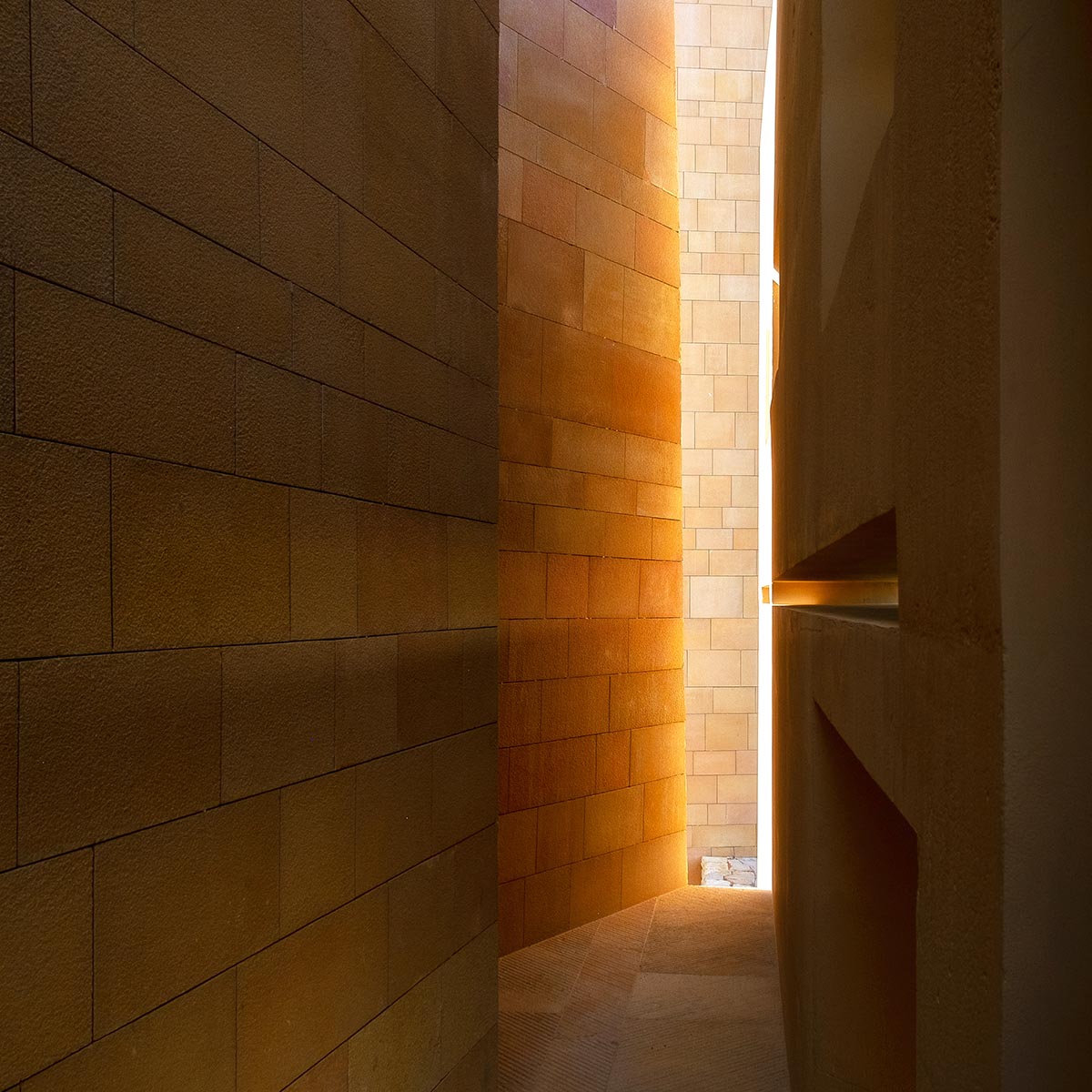
Image © Guido Petruccioli

Image © Hassan A Alshatti
Image © Hassan A Alshatti

Image © Mohamed Somji
Project facts
Project name: Diriyah Art Futures
Architects: Schiattarella Associati
Property: Ministry of Culture
Client: Diriyah Gate Development Authority, Royal
Location: Diriyah (Riyadh), KSA
Completion Year: 2024
Area: 12,000m2
Developer: Diriyah Company
Construction: MARCO
PMC: Arcadis, Ellisdon
Construction Management: Schiattarella Associati + Saud Consult
Art Direction: Schiattarella Associati
Fire Safety: SAGR
Commission: for Riyadh City
Structural Project: Proge77
Systems Design: Euroengineering, Drisaldi Associati, Tekser
Acoustic Specialist: P2ADESIGN
Educational Content: Le Fresnoy - National Studio of Contemporary Arts
Cultural Consultant: Cultural Innovation
Graphics and Wayfinding: Sabir
Top image in the article © Mohamed Somji.
> via Schiattarella Associati
